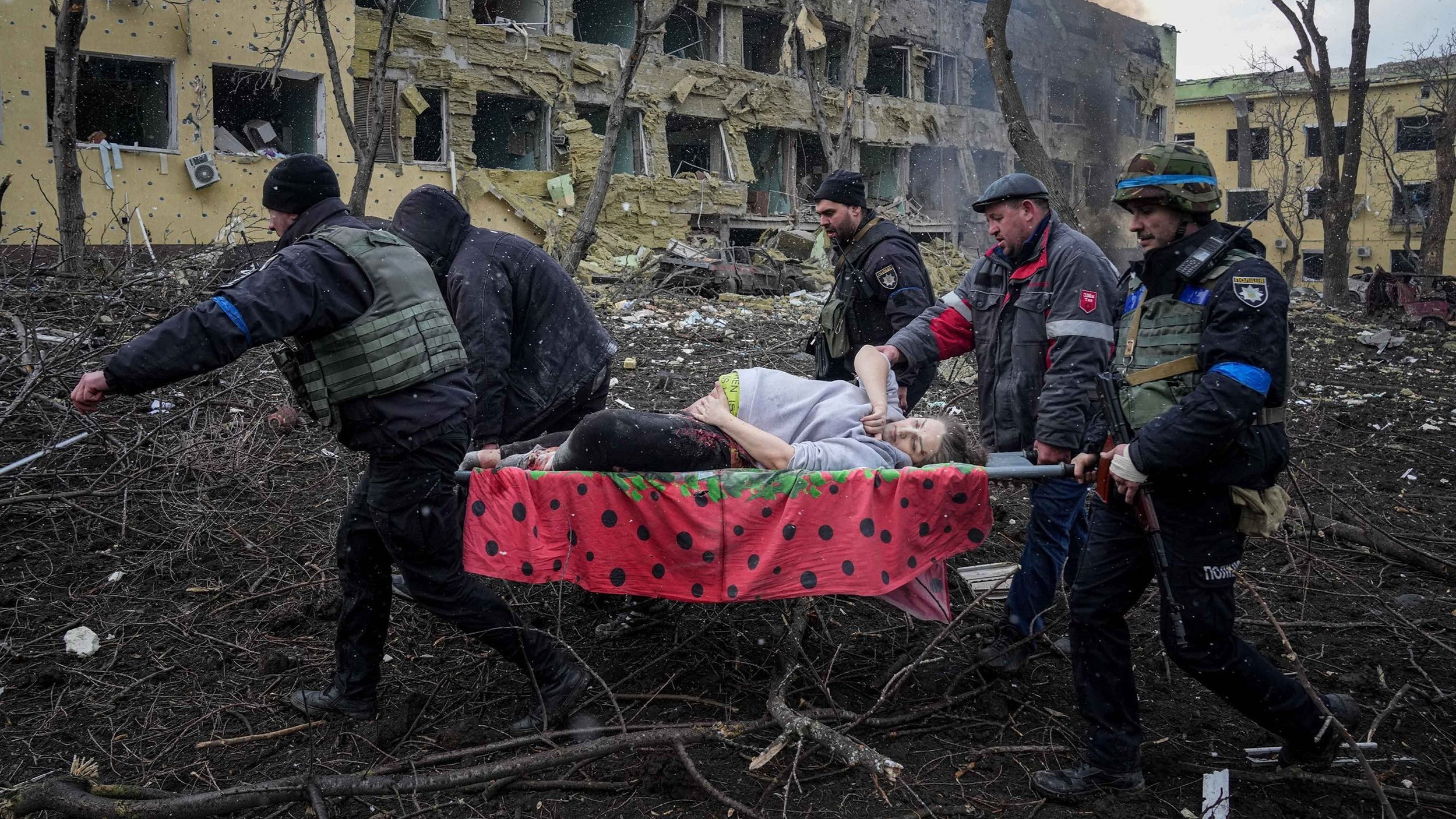20 Days in Mariupol
The suffering of the Ukrainian city Mariupol is captured in a documentary that begs to be seen.
You might well assume that the title of this film by Mstislav Chernov tells you all that you need to know about it. After all, in this day and age it is tragically self-evident that any film set in Mariupol is bound to be concerned with the terrible onslaught on that city by Putin’s Russian forces. That means that the title puts us on notice that watching this film will be a grim experience and for many there will be another factor in play as well, the sense that in any case the fate of Mariupol is something with which news reportage on television has already made us all too familiar. All of that suggests sound logic, but as it turns out it is beside the point. That is because 20 Days in Mariupol is the most important film to have appeared this year and also one of the very best. If you feel that you are up to it and are old are enough (the BBFC has given this documentary an 18 certificate), it is my own belief that you have a duty to yourself to see it.
Mstislav Chernov, who was born in Kyiv, is a Pulitzer Prize-winning photojournalist, a reporter for the Associated Press who has won awards for his work in that sphere. With 20 Days in Mariupol, he has become a filmmaker too and that stems from the fact that he and fellow photographer Evgeniy Maloletka were the last representatives of the Associated Press to leave Mariupol. Already present in the city on 24th February 2022, they were able to trace the impact on the city of Russia's invasion of Ukraine from the outset and only to break off twenty days later when the Russians had entered the city and a desperate bid to get out was the only chance that they had to bring their pictures to the outside world.
There is a brief pre-credit introductory sequence showing the arrival of enemy tanks marked with a Z, but the rest of the film is chronological from that first day to the 15th of March. Chernov supplies the commentary which accompanies the images. The voices of citizens are heard too of course – memorably so – but Chernov’s own remarks are a vital part of the film and, most aptly, his words echo the quiet, controlled anger that was a feature of the commentary in the short masterpiece that Alan Resnais made about the Nazi concentration camps, Night and Fog (1956).
Set throughout in the city itself, 20 Days in Mariupol focuses on the experience of its civilian citizens and its importance lies in one's recognition of the fact that, if one day it were to be shown in proceedings against Putin, this film would in itself constitute incontrovertible proof of the extent to which a civilian population were targeted. Shots of Putin and of one of his staunch supporters are included here declaring that supposed footage evidencing such atrocities was faked and featured actors. To include their comments means that they are now heard in a film which renders that viewpoint patently absurd by what we see in it. Consequently, even if 20 Days in Mariupol had been made without any distinct flair, it would still have served a significant purpose. But, as it turns out, the film is a work of the very highest standard. I understand that many hours of footage were shot over the twenty days and the editing by Michelle Mizner reducing that to a devastating 94 minutes is superb. Furthermore, the colour photography is of the very highest standard.
These outstanding features help to explain why 20 Days in Mariupol is a great cinematic achievement in its own right. Nevertheless, while they clearly contribute greatly, there is one other element present here that is central to the need to recommend the viewing of this film to the widest possible audience. Many people may well believe that there is no great difference between news reports on television showing the war in Ukraine and what can be seen in this film, but that is not the case at all. Still photographs can continue to stand as great art, but the moving pictures that constitute cinema provide an experience of a different kind. Indeed, the medium of cinema when used with real skill can make the viewer feel directly connected with the events depicted on screen in a manner far more potent and compelling than anything that appears in television news programmes. 20 Days in Mariupol is a perfect illustration of the unique power of cinema aligned here with subject matter which needs to be fully known, the truth so dire that it shames all who would try to deny it.
MANSEL STIMPSON
Featuring Mstislav Chernov, Vasilisa Stepanenko, Evgeniy Maloletka, and citizens of Mariupol.
Dir Mstyslav Chernov, Pro Mystyslav Chernov, Raney Aronson-Rath, Michelle Mizner, Deal McCrudden and Vasilisa Stepanenko, Screenplay Mstyslav Chernov, Ph Evgeniy Maloletka and Mstyslav Chernoiv, Ed Michelle Mizner, Music Jordan Dykstra.
Frontline/Associated Press-Dogwoof Releasing.
94 mins. Ukraine. 2023. US Rel: 14 July 2023. UK Rel: 6 October 2023. Cert. 18.


